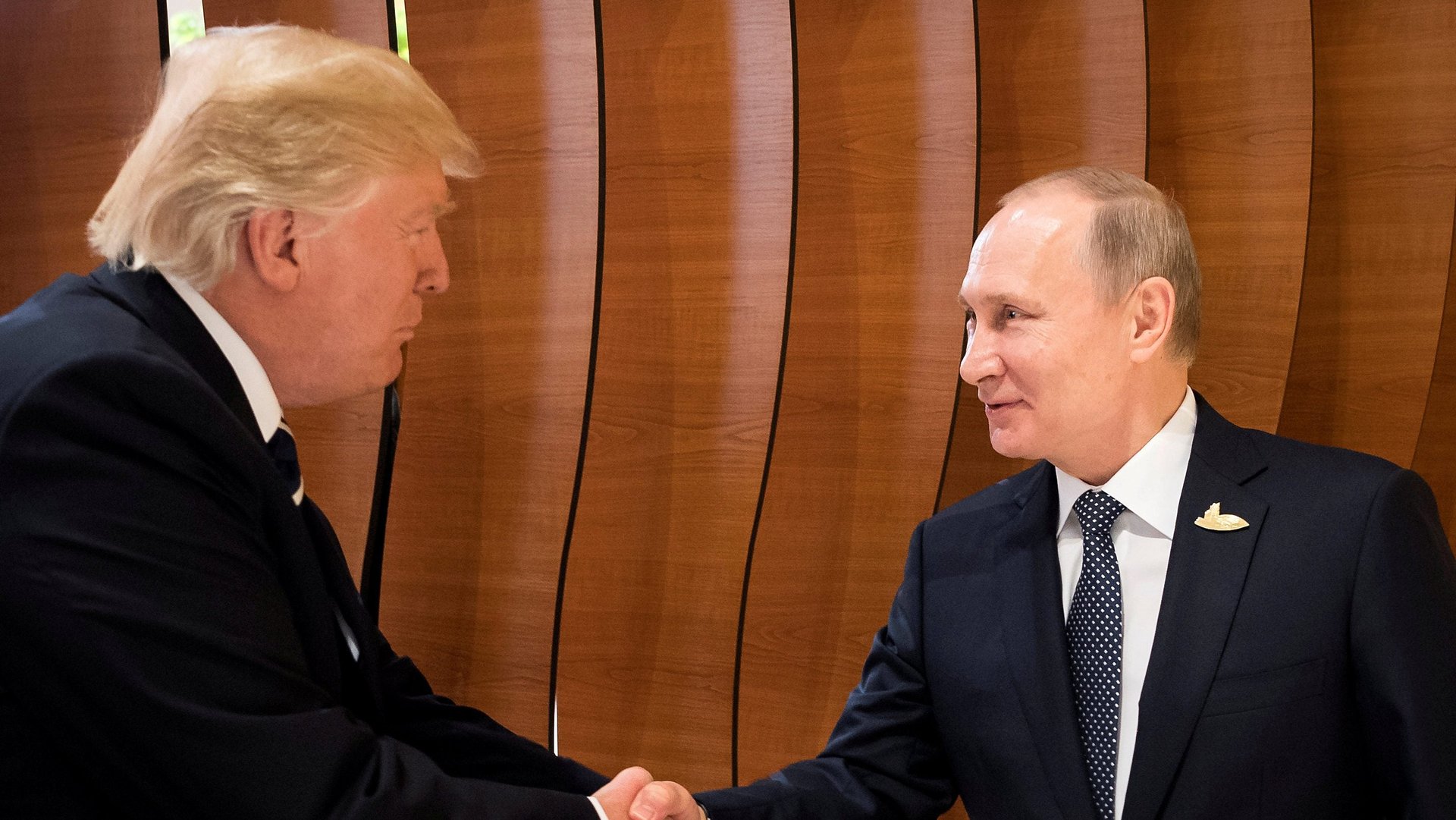Donald Trump confirms he’s siding with Vladimir Putin on US election hacking—over the CIA and FBI
Updated July 9 at 9:30am EDT


Updated July 9 at 9:30am EDT
The president of the United States is taking Vladimir Putin’s word over the work of US intelligence agencies when it comes to whether Moscow meddled in the 2016 race for the White House.
During their lengthy meeting on the sidelines of the G20 summit in Hamburg, Germany, according to Russia’s foreign minister, and Trump’s own tweets later, Trump accepted Putin’s explanation that the Russia government did not interfere in the election. The US president also cast doubt on the credibility of his own government’s long-running investigation into Russian meddling, dismissing months of work by the US agencies—and the conclusions drawn by top officials Trump himself appointed.
“President Trump has said he has heard a clear declaration from Mr. Putin that the Russian government and Russian leadership has not interfered in the elections, and he accepts the things that Mr. Putin has said,” Sergey Lavrov told journalists on the sidelines of the summit on Friday, according to a translation provided by Sputnik, the Russian state new agency. Trump also told Putin that he has heard these allegations for “many months,” and that “not a single fact has been presented,” Lavrov said.
Lavrov also said that either Trump or US Secretary of State Rex Tillerson (he couldn’t remember) said the “campaign” about Russia’s alleged interference has taken on “a strange nature,” according to a report in Russian on RIA, another state-run news agency.
On Sunday, Trump confirmed Lavrov’s report, tweeting that he had “strongly pressed” Putin twice “about Russian meddling” in the US election. Putin “vehemently denied it,” Trump tweeted.
Trump’s position is likely to drive an even deeper wedge between the White House and the US intelligence community, even as the FBI and is investigating whether the Trump campaign or administration colluded with Russia to interfere in the election.
Trump’s continued assertion that any assertion that Russia meddled in the last US election is “fake news” have been publicly and repeatedly disputed by intelligence agencies and members of Congress.
On Jan. 6, the US director of national intelligence agencies issued a joint report (pdf) that said:
We assess Russian President Vladimir Putin ordered an influence campaign in 2016 aimed at the US presidential election. Russia’s goals were to undermine public faith in the US democratic process, denigrate Secretary Clinton, and harm her electability and potential presidency. We further assess Putin and the Russian Government developed a clear preference for President-elect Trump.
Top intelligence officials that Trump appointed himself have said publicly that Russia interfered in the US election in recent months. When the Senate Intelligence Committee held a public hearing (pdf) on the issue on May 11, Mark Warner, the Democrat from Virginia, asked agency heads to answer one question with a simple “Yes” or “No.”
Did they agree, Warner asked, that Jan. 6 report “accurately characterized the extent of Russian activities in the 2016 election and its conclusion that Russian intelligence agencies were responsible for the hacking and leaking of information and using misinformation to influence our elections?” Warner asked. (You can watch the question being posed at here at the 1:04:00 mark.)
Every single intelligence official testified “Yes”—including Director of National Intelligence Dan Coats and CIA director CIA Mike Pompeo, both Trump appointees.
“Russians have spread this across the globe,” Coats said then. “It’s a great threat to our democratic process.”
His boss apparently remains unconvinced.